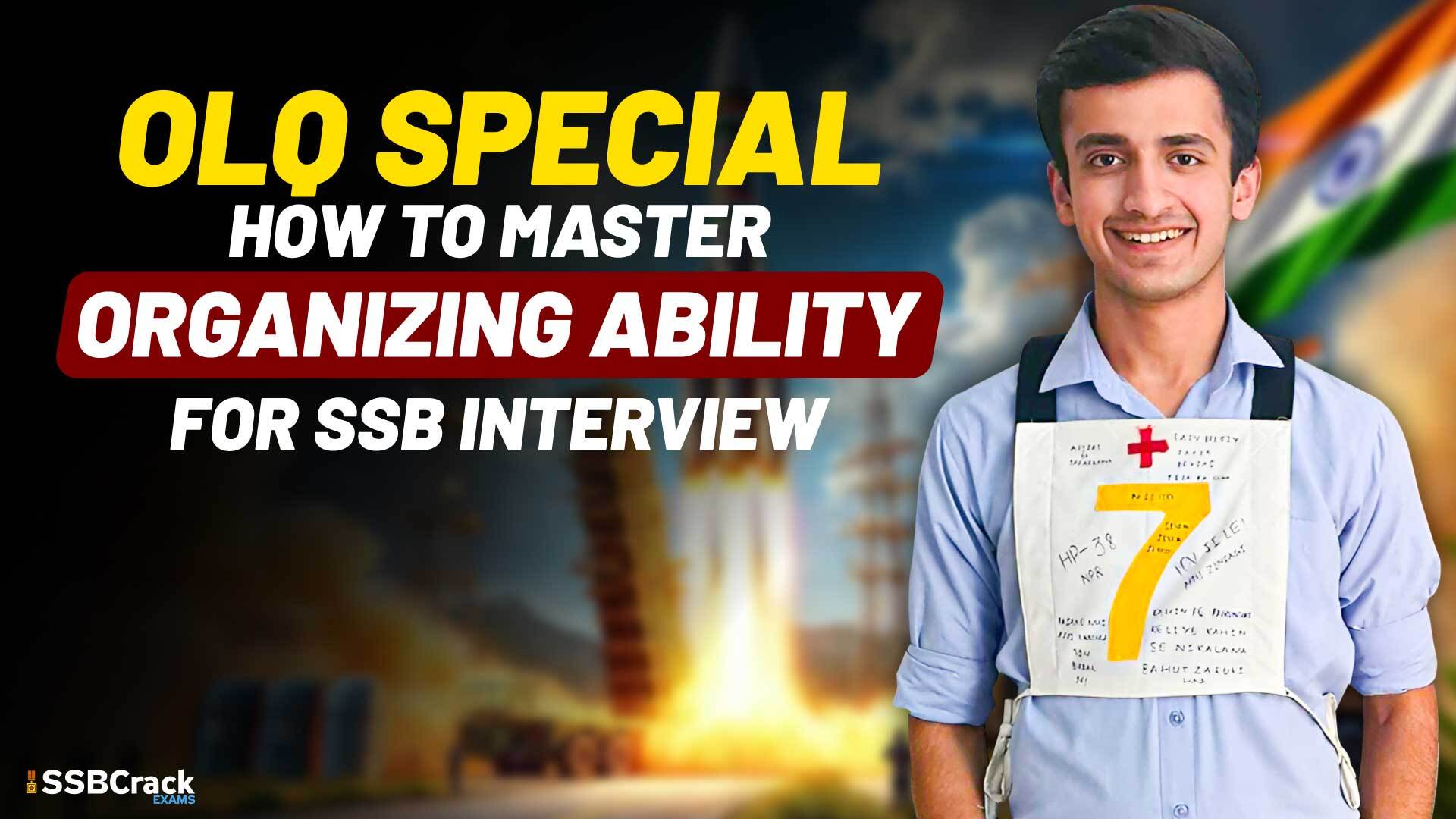Among the 15 essential Officer Like Qualities (OLQs) evaluated during the SSB Interview, Organizing Ability plays a vital role in determining an aspirant’s capacity to plan, structure, manage, and execute tasks effectively. It reflects a candidate’s potential to function as a leader and coordinator who can bring order out of chaos — a critical trait for any officer in the Armed Forces.
This article will explain in depth:
- What Organizing Ability is
- Where and how it is assessed during the SSB
- What aspirants should do to demonstrate this quality
- Practical ways to develop it in everyday life
What is Organizing Ability?
Organizing Ability refers to:
“The capacity to plan systematically, manage available resources, allocate roles and responsibilities, and execute a task with efficiency and foresight.”
A person with strong Organizing Ability is:
- Methodical and structured in approach
- Good at prioritizing tasks
- Capable of managing people, time, and resources efficiently
- Able to anticipate challenges and prepare for them
In the Armed Forces, an officer constantly manages men, materials, and missions — and this OLQ is central to achieving that.
Where Is Organizing Ability Assessed in SSB?
1. Group Testing Officer (GTO) Tasks
- Group Planning Exercise (GPE):
You need to analyze problems, prioritize them, divide resources, and present a clear action plan. - Progressive Group Task (PGT), Half Group Task (HGT), Final Group Task (FGT):
Managing time, teamwork, materials (planks, ropes, load), and guiding the group toward a solution. - Command Task:
Efficient task execution using available resources and your subordinates. - Lecturette:
Presenting ideas in a structured, time-bound, and logical manner.
2. Psychological Tests
- Situation Reaction Test (SRT):
Demonstrates your ability to think clearly, prioritize, and manage emergencies without confusion. - Thematic Apperception Test (TAT):
Your stories should depict protagonists who plan and organize efforts logically.
3. Personal Interview
- Questions on your past leadership, event management, club responsibilities, or group projects test how well you’ve organized people and tasks in real life.
How Is Organizing Ability Evaluated?
Assessors look for:
- Logical sequencing of actions
- Practical use of resources
- Time and priority management
- Division of tasks based on roles and skills
- Clarity in execution under limited time and group pressure
They assess whether you’re someone who can visualize a plan, divide it into steps, and execute it efficiently.
How Can Aspirants Showcase Organizing Ability?
✔️ In GPE:
- Present your plan with a structured opening (assessment), body (problem-wise solution), and closure (summary).
- Use time, distance, and resource calculations to present an efficient strategy.
- Suggest division of group members based on task urgency.
✔️ In PGT/HGT:
- Keep the group calm and methodically use materials.
- Suggest logical sequences like anchoring planks first, then forming bridges.
✔️ In Interview:
- Share past examples where you led or managed a team, event, project, or crisis.
- Focus on how you planned, organized steps, delegated roles, and executed successfully.
How to Develop Organizing Ability in Daily Life
Here are targeted activities you can do at home, school/college, and work to build and strengthen this OLQ:
At Home
- Plan a Family Event or Trip
- Budgeting, itinerary, meal plans, task division
- 🧩 Teaches time/resource management & foresight
- Organize Daily Household Chores
- Make a task schedule, assign responsibilities
- 🧩 Promotes delegation and planning
- Manage a Budget or Grocery List
- Plan purchases within limits, ensure utility
- 🧩 Enhances planning within constraints
At School/College/University
- Lead a Fest, Club, or Event Committee
- Plan roles, set deadlines, arrange logistics
- 🧩 High-pressure task management & leadership
- Group Project Management
- Assign sections, set review timelines, follow-up
- 🧩 Sharpens micro-planning and accountability
- Maintain a Planner or Productivity Journal
- Plan weekly academic/fitness goals
- 🧩 Helps develop structure & tracking mindset
At Workplace/Internship
- Organize Team Meetings or Workflows
- Draft agendas, track action points, manage time
- 🧩 Builds efficiency and prioritization
- Lead a Project Module
- Break tasks into phases, assign members, set milestones
- 🧩 Replicates real-life mission planning
- Conduct Trainings/Workshops
- Schedule sessions, prepare materials, communicate with team
- 🧩 Develops planning and execution under constraints
Final Thoughts
Organizing Ability is more than a leadership trait — it’s the skill of transformation: taking unstructured problems and turning them into clear, executable action. Whether you’re planning a military operation, a college event, or solving a map-based GPE in the SSB, this OLQ will empower you to lead with structure, clarity, and calmness.
In the SSB, officers are not just judged for bravery or intelligence—they’re assessed for their ability to organize chaos into command. Develop this trait consciously, and your actions will speak volumes to the assessors.







